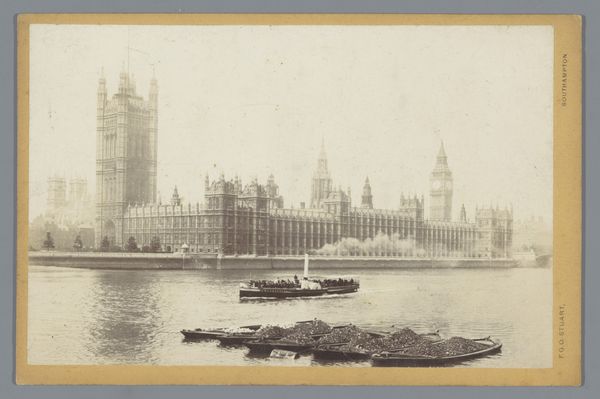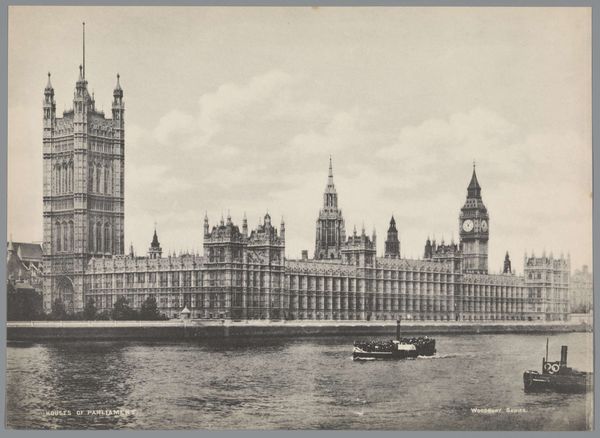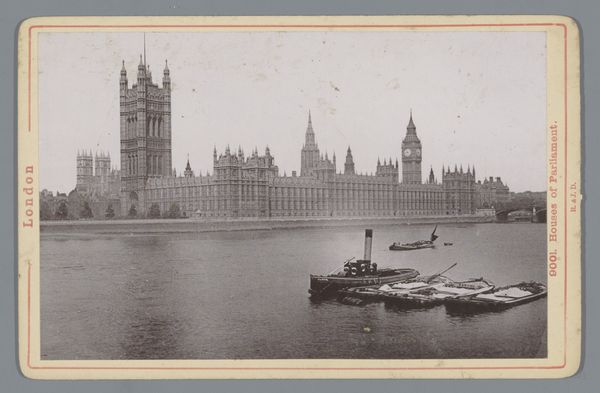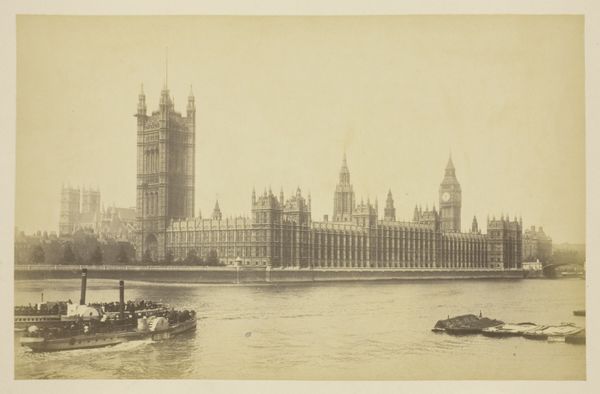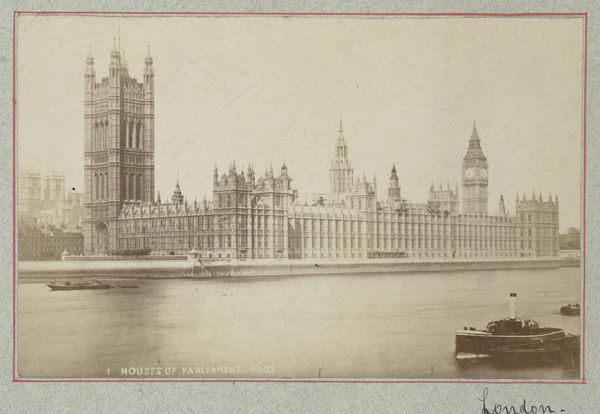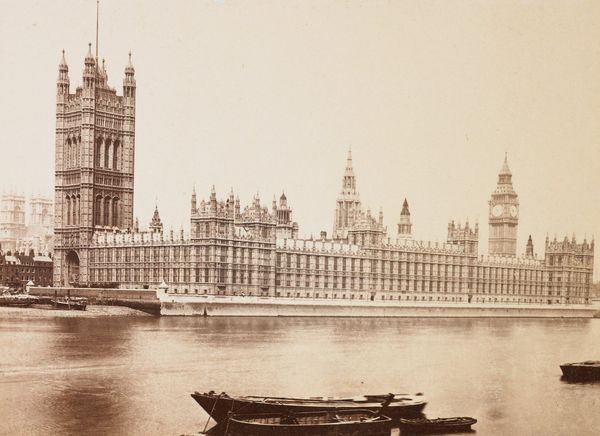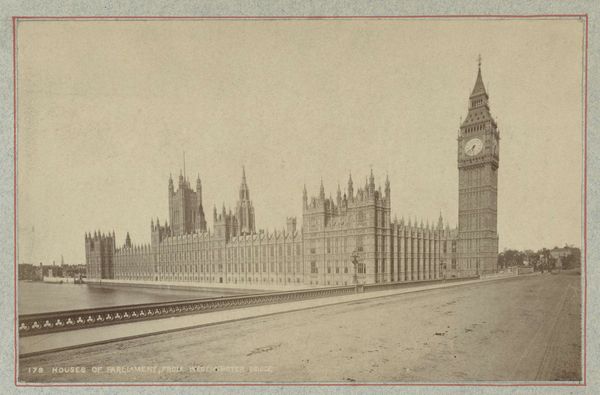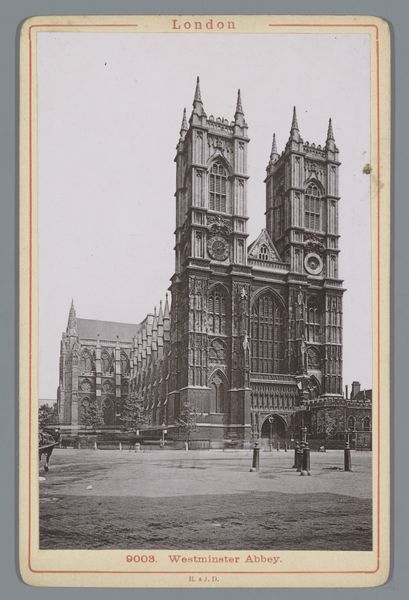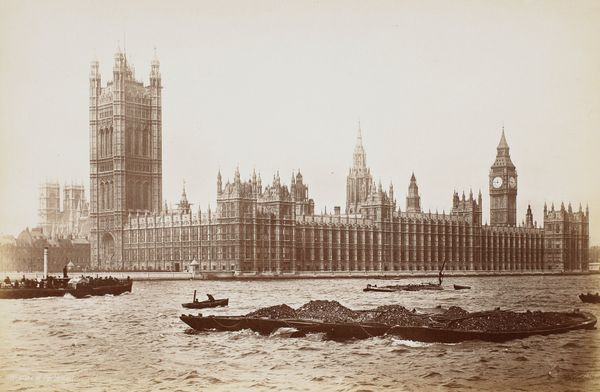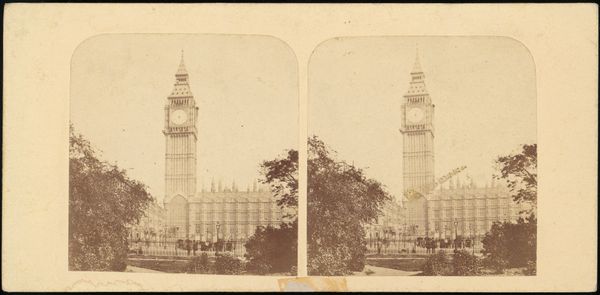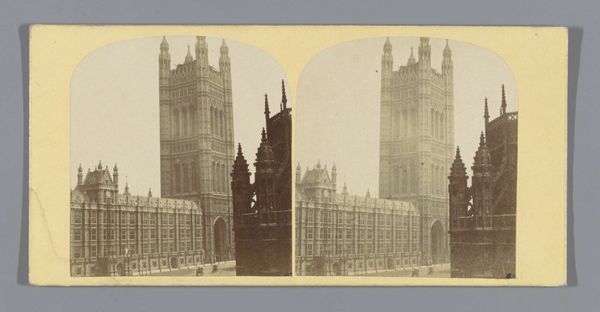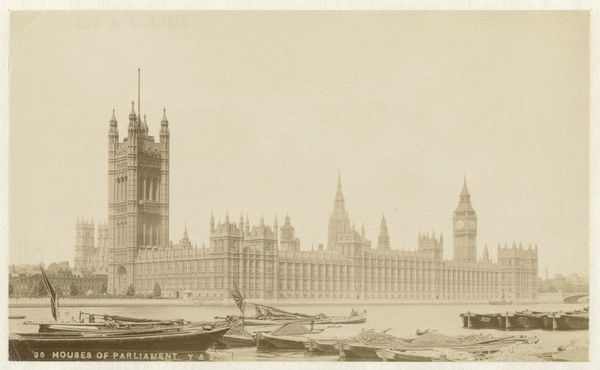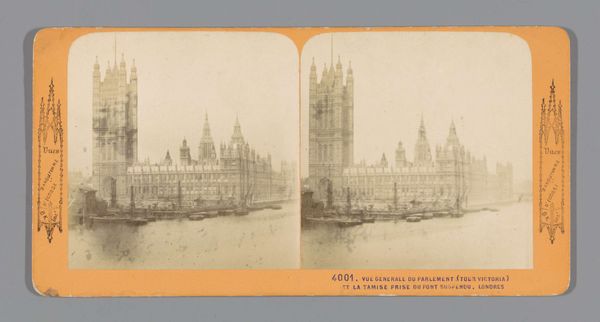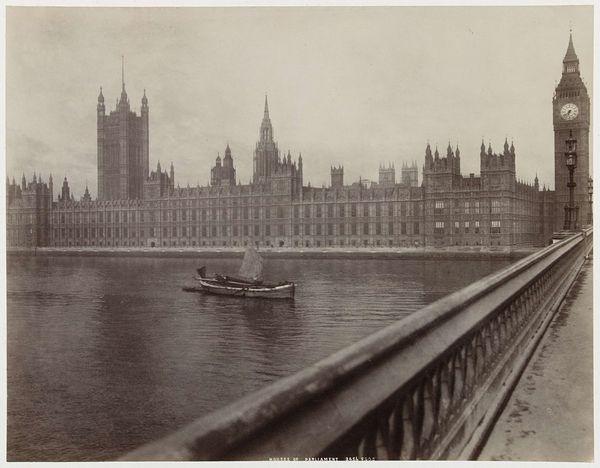
Dimensions: height 136 mm, width 85 mm
Copyright: Rijks Museum: Open Domain
Editor: This sepia-toned print, possibly from 1918 by Rotary Photo, shows a warped view of Big Ben. The clock tower looks like it's melting! It even has handwriting on the print that asks, "Do you remember our night out in London?". I’m curious, what statement do you think this photograph is making about the London of its time? Curator: This photograph’s distortion of such an iconic landmark points to the socio-political disruptions happening at the time. World War I was drawing to a close, and traditional ideas of order and stability were crumbling. Think of it as visual commentary on the shifting sands of power and the anxieties of a society grappling with immense change and loss. Does the distortion also read like playful cynicism? Editor: Absolutely. I see both anxiety and playful sarcasm. Was it common for postcards of that era to engage in such commentary? Curator: Postcards often served as propaganda tools during wartime. However, a playful distortion of a national symbol like Big Ben could be a subtle form of protest or perhaps a coping mechanism. Also consider how new technologies affected artistic representation. Photography, especially its manipulation, allows for new ways to represent and perhaps challenge, established social structures. Editor: So, this 'melting' Big Ben challenges traditional authority in a time of war and social upheaval. Curator: Exactly. This manipulated image invites the viewer to question the very foundations of their society. The placement of text adds another layer. Who do you think the target audience was? And for what purposes was the work used? Editor: Now that I consider those questions, I think that this picture is both playful and politically engaging, encouraging questions about our perceptions of reality during such periods of transformation. Curator: Indeed. By viewing it in the context of its historical moment, we can appreciate how a simple postcard photograph becomes a potent expression of cultural unease.
Comments
No comments
Be the first to comment and join the conversation on the ultimate creative platform.
